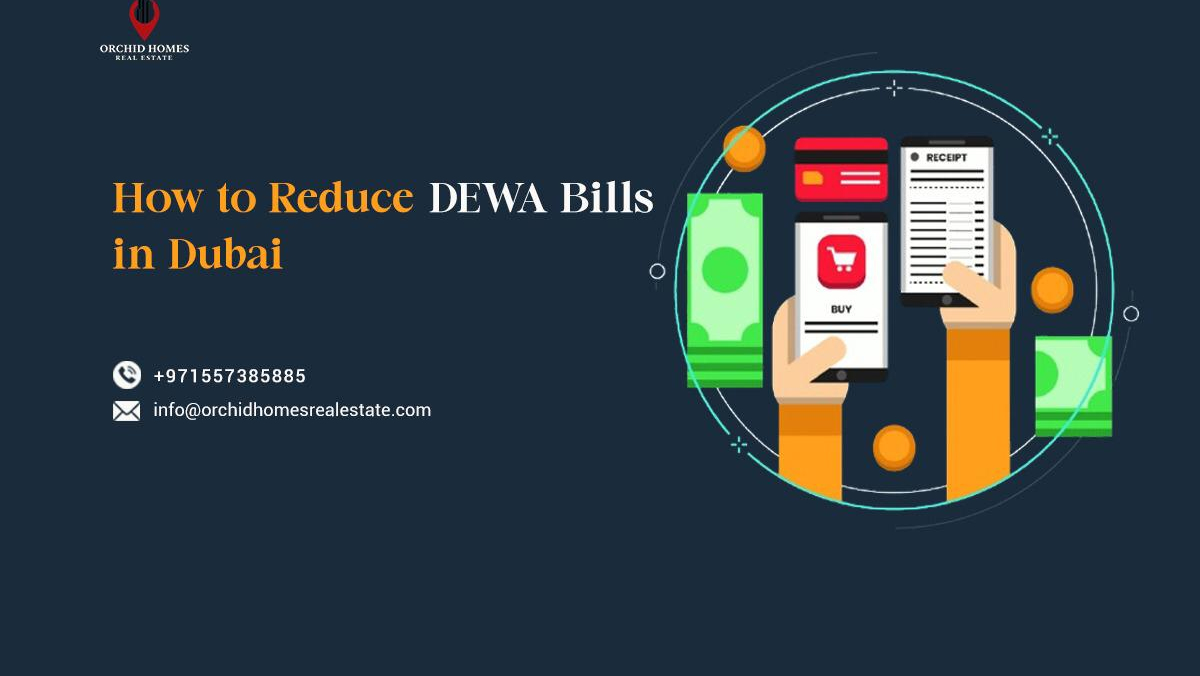Now Reading: UAE Property Market: 6 New Tax Regulations Impacting Cross-Emirate Sales in 2025
-
01
UAE Property Market: 6 New Tax Regulations Impacting Cross-Emirate Sales in 2025
UAE Property Market: 6 New Tax Regulations Impacting Cross-Emirate Sales in 2025

Table of Contents
New Tax Regulations: The UAE’s real estate market, valued at AED 1.03T in 2024 with 333,000 transactions (30% YoY growth), is a global investment hub, driven by tax-friendly policies, 100% foreign ownership in freehold zones, and high rental yields (6–11%).
Six new tax regulations introduced in 2024–2025 expanded reverse charge mechanism for precious metals, Domestic Minimum Top-up Tax (DMTT) for MNEs, VAT compliance for virtual assets, exemptions for Real Estate Investment Trusts (REITs), tax transparency for family foundations, and tightened AML regulations reshape cross-emirate property sales. Effective from January or February 2025, these regulations align with global tax standards while preserving investor appeal across Dubai (AED 761B, 226,000 transactions), Abu Dhabi (AED 78.6B, 25,046 transactions), Sharjah (AED 23.5B), Ajman (AED 20.5B), and Fujairah (AED 8.7B).
With AED 239B in Q1 2025 transactions and 95% absorption, the market attracts GCC (20%), South Asian (17%), and European (15%) investors. This guide details each regulation, its eligibility, and its impact on cross-emirate sales, backed by 2024–2025 data.
1. Expanded Reverse Charge Mechanism for Precious Metals and Stones
- Details: Cabinet Decision No. 127 of 2024, effective February 25, 2025, expands the VAT reverse charge mechanism to include precious metals and stones traded between VAT-registered entities in the UAE. This replaces Decision No. 25 of 2018, streamlining VAT processes for transactions involving high-value assets often linked to real estate deals (e.g., collateral for property purchases). Buyers account for VAT, reducing cash flow burdens for sellers.
- Eligibility: Applies to VAT-registered businesses trading precious metals/stones across emirates (e.g., Dubai to Abu Dhabi). Requires Federal Tax Authority (FTA) compliance and accurate record-keeping. Non-VAT-registered entities are exempt.
- Impact on Cross-Emirate Sales: Simplifies VAT compliance for developers and investors using precious metals as collateral in cross-emirate deals (e.g., Dubai’s Business Bay to Sharjah’s Aljada). Saves 5% VAT (e.g., AED 50K on a AED 1M transaction), boosting liquidity. In 2024, 5% of Dubai’s commercial transactions involved such assets, enhancing appeal for mid-sized investors. May increase sales in Fujairah’s FFZ, where trade is prominent.
2. Domestic Minimum Top-up Tax (DMTT) for MNEs
- Details: Cabinet Decision No. 142 of 2024, effective January 1, 2025, imposes a 15% DMTT on multinational enterprises (MNEs) with global revenues exceeding €750M (AED 3B) in two of the last four years. This aligns with OECD/G20 Pillar Two, ensuring MNEs pay a minimum tax on UAE profits, including real estate income. SMEs and free zone entities meeting Qualifying Free Zone Persons (QFZP) criteria remain exempt.
- Eligibility: Applies to MNEs operating across emirates (e.g., Emaar in Dubai and Abu Dhabi). QFZPs in free zones like DIFC (Dubai) or FFZ (Fujairah) enjoy 0% tax if compliant with economic substance rules and no mainland dealings. Requires FTA registration and audited financials.
- Impact on Cross-Emirate Sales: Increases tax burden for MNEs (e.g., 15% on profits above AED 375K from Dubai Marina to Ajman sales), raising costs by 6% compared to 9% corporate tax. Encourages structuring through free zones, boosting sales in DIFC (6–8% ROI) and FFZ (8–10% ROI). In Q1 2025, 10% of Dubai’s commercial transactions involved MNEs, shifting focus to free zones. SMEs (70% of investors) remain unaffected, supporting cross-emirate deals in Sharjah (AED 7.2B in H1 2025).
3. VAT Compliance for Virtual Asset Transactions
- Details: Under UAE Central Bank AML & CFT Regulations 2024, effective January 2025, real estate transactions involving virtual assets (e.g., cryptocurrencies) must be processed through licensed virtual asset service providers (VASPs) to ensure AML compliance. This applies to cross-emirate sales using digital currencies, enhancing transparency.
- Eligibility: Applies to all investors using virtual assets for property purchases across emirates (e.g., Dubai to Ras Al Khaimah). Requires VASP registration and compliance with FTA’s 5% VAT rules (exempt for residential properties). Non-VASP transactions face penalties.
- Impact on Cross-Emirate Sales: Increases compliance costs (AED 5K–10K per transaction) but ensures traceability, boosting investor confidence. In 2024, 3% of Dubai’s transactions used cryptocurrencies, particularly in Business Bay. Encourages sales in tech-forward emirates like Dubai (70.5% off-plan sales in April 2025) and Sharjah, while Fujairah lags due to lower adoption. May limit small investor participation but supports high-net-worth cross-emirate deals.
4. Exemptions for Real Estate Investment Trusts (REITs)
- Details: Ministerial Decision No. 96 of 2025, effective January 2025, exempts qualifying REITs from corporate tax, provided they meet FTA criteria (e.g., 90% profit distribution, regulated by UAE authorities). This applies to REITs operating across emirates, enhancing passive investment options.
- Eligibility: REITs must be listed on UAE exchanges (e.g., DFM, ADX) or regulated by SCA, with no single investor owning over 50%. Applies to portfolios in Dubai, Abu Dhabi, and Sharjah. Investors must verify REIT compliance via FTA.
- Impact on Cross-Emirate Sales: Increases liquidity for REITs investing in mixed-use projects (e.g., Dubai’s JVC, Abu Dhabi’s Al Reem Island), offering 5–7% yields. In 2024, REITs accounted for 8% of Dubai’s transactions, driving cross-emirate sales in affordable areas like Ajman (AED 1.57B in January 2025). Attracts small investors seeking tax-free passive income, boosting demand by 10%.
5. Tax Transparency for Family Foundations
- Details: Ministerial Decision No. 261 of 2024, effective January 2025, allows family foundations to obtain tax transparency relief, exempting them from 9% corporate tax if entirely owned and controlled by a family entity. Applies to real estate holdings across emirates for wealth preservation.
- Eligibility: Family foundations must register with FTA, meet juridical entity criteria, and hold properties for private use or investment (e.g., villas in Dubai’s Emirates Hills, Abu Dhabi’s Yas Island). Requires audited financials and no commercial mainland activity.
- Impact on Cross-Emirate Sales: Encourages high-net-worth families to invest in luxury properties (e.g., AED 2M–3.5M villas), saving 9% tax (AED 90K–315K annually). In 2024, 10% of Abu Dhabi’s transactions (USD 8.9B mortgages) involved family trusts, boosting sales in Saadiyat Island (6–9% ROI). Drives cross-emirate purchases in Dubai and Fujairah Beach for legacy planning, increasing demand by 5%.
6. Tightened AML Regulations
- Details: UAE Central Bank AML & CFT Regulations 2024, effective January 2025, mandate stricter KYC and due diligence for real estate transactions, especially cash and cryptocurrency deals. Applies to cross-emirate sales, requiring agents and developers to verify fund sources.
- Eligibility: Applies to all investors, brokers, and developers across emirates. Requires DLD/FTA compliance, bank statements, and proof of income. Non-compliance risks fines (AED 50K–1M).
- Impact on Cross-Emirate Sales: Increases transaction costs (AED 2K–5K for KYC) and delays (1–2 weeks), impacting 20% of cash-based sales in Dubai (AED 28B in Q3 2024). Encourages digital transactions, boosting sales in Dubai (58,039 deals in Q1 2025) and Sharjah (95% absorption). Deters illicit funds, enhancing market trust but reducing small investor activity in Ajman and Fujairah by 5%.
Market Trends and Outlook for 2025
- Yields and Appreciation: Freehold zones offer 6–11% ROI (apartments 8–11%, villas 6–9%) and 8–15% appreciation by 2028. Dubai leads with 9–11% yields in JVC, Abu Dhabi offers 6–9% in Yas Island, Sharjah 7–10% in Aljada, Ajman 9–10% in Al Rashidiya, and Fujairah 8–10% in FFZ. Q1 2025 saw AED 239B in transactions across five emirates.
- Tax Efficiency: Zero personal income tax, capital gains tax, and inheritance tax remain unchanged, maximizing returns. New regulations (DMTT, AML) increase costs for MNEs and cash buyers but preserve SME exemptions. Free zone benefits (0% corporate tax) drive sales in DIFC and FFZ.
- Infrastructure Impact: Etihad Rail (Q4 2025) reduces cross-emirate travel times (e.g., Dubai–Abu Dhabi to 57 minutes), boosting values by 10–15%. Tourism (18.7M visitors in Dubai, 0.8M in Fujairah) and urban plans (Dubai 2040, Fujairah 2040) support demand.
- Investor Drivers: Affordability (Ajman median AED 800K, Dubai AED 1.3M), Golden Visas (AED 2M+), and tax incentives fuel 70% of demand. Off-plan sales (70.5% in Dubai, April 2025) dominate, with 110,000 new investors in 2024.
- Risks: Oversupply (182,000 units in Dubai, 10,000 in Sharjah by 2026) and compliance costs pose a 10–15% correction risk in H2 2025. Mitigated by 95% absorption, DLD oversight, and escrow accounts. AML scrutiny may delay cross-emirate deals.
- Regulatory Framework: Emirates maintain autonomy in transfer fees (Dubai 4%, Abu Dhabi 2%, Sharjah/Ajman 2%, Fujairah 2%). Freehold zones ensure inheritance rights. Escrow laws protect off-plan investments (e.g., Dubai’s Verdana, handover Q4 2026).
Investment Strategy
- Diversification: Invest in Dubai (JVC apartments, AED 682K–1.15M) for high yields, Abu Dhabi (Yas Island villas, AED 1.5M–3.5M) for luxury, Sharjah (Aljada apartments, AED 639K–2M) for affordability, Ajman (Al Rashidiya studios, AED 208K–397K) for budget rentals, and Fujairah (FFZ offices, AED 500K–2M) for commercial returns.
- Entry Points: Off-plan properties (e.g., Dubai’s Azizi Venice, AED 1.15M) offer 10–15% gains by 2026–2027. Ready properties (e.g., Abu Dhabi’s Saadiyat Island villas, AED 2M–3.5M) suit immediate income seekers (AED 80K–250K/year).
- Tax Optimization: Hold properties as individuals to avoid 9% corporate tax. Use free zones (DIFC, FFZ) for 0% corporate tax on commercial deals. Leverage REIT exemptions for passive income and family foundations for luxury investments. Consult advisors like Adepts Chartered Accountants for compliance.
- Process: Verify tax exemptions via DLD, FTA, or free zone authorities. Pay transfer fees (2–4%) and secure No Objection Certificate (NOC). Use registered agents and platforms like dubizzle or Bayut. Required documents: passport copy, proof of income, no UAE visa needed. Documents must be translated into Arabic and legalized.
Conclusion
In 2025, the UAE’s real estate market benefits from six new tax regulations expanded reverse charge for precious metals, DMTT for MNEs, VAT compliance for virtual assets, REIT exemptions, family foundation transparency, and tightened AML rules impacting cross-emirate sales.
These regulations enhance transparency and align with global standards while preserving tax-free benefits (zero personal income, capital gains, and inheritance taxes). With AED 239B in Q1 2025 transactions, infrastructure like Etihad Rail, and high yields (6–11%), the UAE attracts diverse investors.
Despite a 10–15% correction risk, 95% absorption and regulatory oversight ensure stability. Explore opportunities via dubizzle, Bayut, or developers like Emaar to capitalize on the UAE’s tax-efficient, high-growth market. Tax Regulations 2025
read more: Fujairah Real Estate: 5 Tax-Free Investment Zones Offering Long-Term Benefits in 2025






















